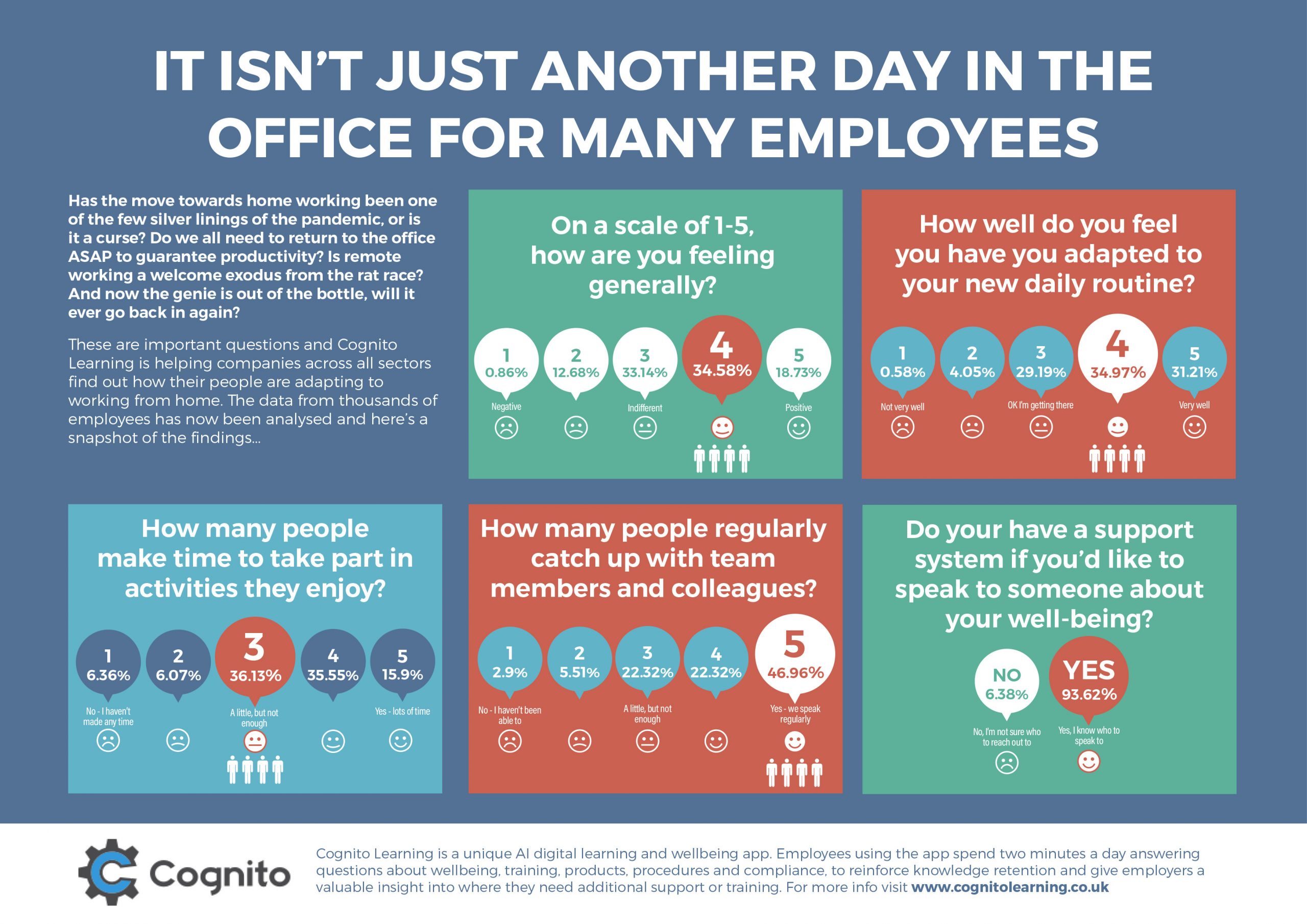With the removal of the daily commute for those people able to work from home during the pandemic, many hoped for a better work/life balance. However, almost half still lack sufficient time to participate in activities they enjoy, according to new research.
More than a third of people say that although they have spent a little time doing activities they enjoy, they haven’t been able to make enough time, with 12% unable to make any time, or very little, according to data compiled by Cognito Learning. Just under 16% of people felt they had lots of time to participate in activities.
Cognito Learning is a unique AI digital learning and wellbeing app. Employees using the app spend less than two minutes a day answering questions about training, wellbeing, products, procedures and compliance, to reinforce knowledge retention and give employers a valuable insight into where they need additional support or training. The company has now analysed the data that thousands of employees working across all industries have provided about working from home.
The data also reveals that whilst people might not be benefitting from having extra time, two thirds feel they are coping well or very well with their new routine and 29% said they are ok and getting there. Less than 5% gave a negative response to home working.
In addition, 47% said they speak regularly and keep in close contact with colleagues, although 22% said that although they talk, they do not do it enough. Just 3% said they have not been able to speak to colleagues and 94% of people said their employer has a support system in place and they know who to contact if they wanted to discuss their wellbeing.
When asked about how they are feeling generally, on a scale of one to five, with one being negative and five being positive, almost 35% of people clicked number four and a third said they feel indifferent. Almost a fifth chose number five, revealing they are positive about the whole experience. Just 14% felt negative about working from home.
Allan Pettman, CEO from Cognito Learning, said: “Over the past 12 months businesses and organisations across all sectors have had to embrace home working and for some it has been a steep learning curve. We’ve helped all types of employers work out how their teams are coping and feeling, in order to gauge where additional help and support is required.
“It’s interesting that people aren’t necessarily taking advantage of the extra time that they previously spent commuting and therefore remote working isn’t necessarily a golden ticket to freedom, that some envisaged, although it’s clear that most people enjoy home working. This is good news for businesses, but it could make for a difficult conversation when the time comes to return to the office and employers need to be thinking about how to manage this.
“Many organisations we are now speaking to are currently evaluating how they can provide employees with the ability to flex and blend their time in the office, moving forward. However, businesses must ensure they can positively leverage the potential fixed cost property benefit, as well as ensuring the hot desking concept genuinely works.
“This change in working practice requires further analysis in terms of organisational development needs. Businesses have to evaluate their learning estate to find low-cost delivery methods that are supported by learning reinforcement.
“As a result, we are now working with employers to support learning solutions that are standard in method, which is cost effective, whilst still being flexible and tailored to the individual employee, which drives engagement and impact, and this is going to be crucial in the post-Covid world.”







